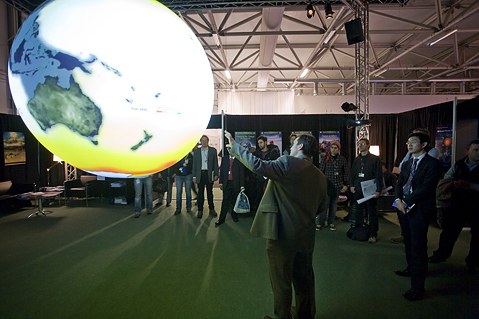Lockouts and Walkouts
Access gets hard as Operation Copengaen hits day 4
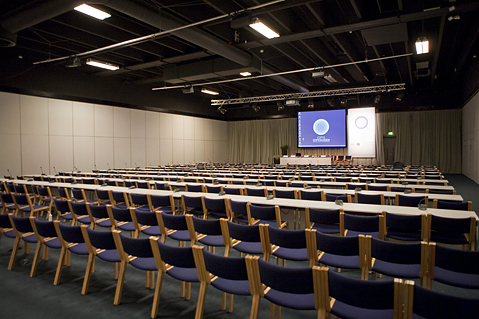
The final week of the COP15 kicked off with disappointment for some official delegates and observers alike today. With crowds already impressive, a second wave of planned attendees arriving this week for the final push towards a climate deal- plus a very palatable uptick in security concerns about a possible terrorist strike or more radical protester dissent- forced conference organizers to pull back thousands of previously issued passes to the Bella Center. The end result being that many folks from non-government agencies, including observer groups like the crew of 20 students from UCSB’s Environmental Affairs Board, were left on the outside looking in this morning. “The UCSB group is going to have quite a hassle getting in. We’re trying to remain optimistic but things are looking grim.” quote explained one of the Gauchos in Copenhagen Jess White.
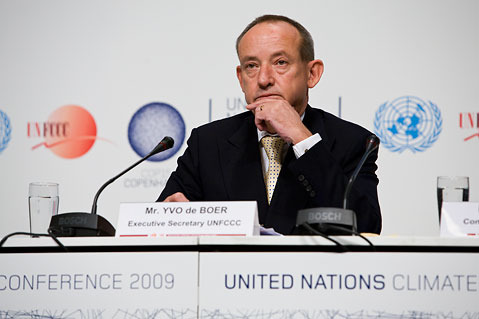
Luckily for Operation Copenhagen, the increased lock down of the Bella Center did not apply for the media masses and, after a few more shakedowns by the police than we had previously encountered, we were once again on the inside of the biggest planet loving science fair the world has ever seen. And it is a good thing we made it as perhaps the biggest drama to date, at least on the negotiations front, broke out around mid-day. In a dramatic turn of events, at a time when every minute of sub-group horse trading on big ticket items is crucial as the negotiation process ramps up for the arrival of top level heads of state later this week, delegates from several developing countries- including several African nations, Brazil, India and China- walked out in disgust in the middle of the talks.
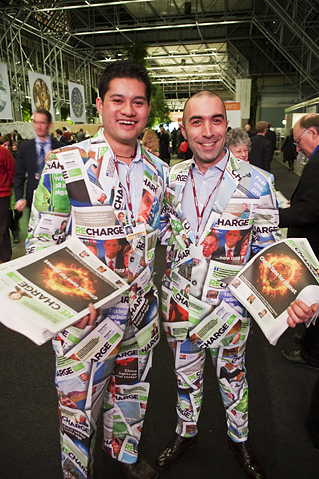
For them, the current direction of talks was too much about the needs and wants of industrial countries and less and less about what developing nations need, specifically money wise, in order to make wide spread carbon emission cuts feasible. Moreover, the frustrated nations feel that bigger industrial countries are responsible for more of the carbon mess thus they should have to make bigger cuts and pay more to for the clean up so to speak. Furthermore, the less industrialized countries, while they may consider climate reduction a priority, are unwilling the hamstring their own economic growth. On a related note, the irony that high polluting- yet still very much developing- nations like China and India were involved in the walkout was not lost on most in the Bella Center- though it seems that such irony is the calling card of this incredibly complicated and confused process.
Quick action by Conference Executive Secretary Yvo de Boer helped remedy the row and the walk out was smoothed over within a few hours. By the end of the day, industrialized nations like the United States, Italy, Britain and Norway, had pledged a total of $350 million over the next 5 years to help lesser nations make the necessary pro-planet moves. Though not an ideal financial kick-down from the more economically endowed countries, the pledge was, at the very least, a sign of a movement in the right direction. But make no mistake, there is still more distance between the two sides than there is closeness.
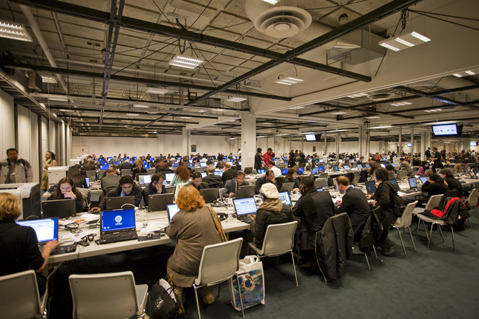
As for the access issues being dealt with by the thousand of attendees, it seems there is little that can be done. Talking to conference authorities, the numbers are grim- some 46,000 have received accreditation yet fire code has the Bella Center maxing out at 15,000 people at any one time. Numbers aren’t really our thing here at Operation Copenhagen but even we know that that formula equals long lines and certain disappoint for thousands of hopeful participants.
Besides walk-outs and lock outs, the other major news on day 1 of COP15’s last week was the breakout of some late night riots in the Christiania part of Copenhagen. Though details remain sketchy, there are reports of molotov cocktails, burning police barricades, approximately 200 arrested protesters, and general chaos in the streets. It is impossible to say for sure, but with the conference doing nothing but heating up over the next 3 days as final negotiations conclude and more than 130 top level leaders from around the world, including President Obama, arrive to hopefully seal and celebrate a new climate deal, you get the feeling that unrest won’t be resting anytime soon.
